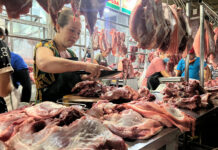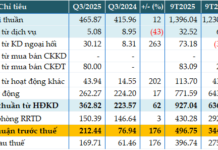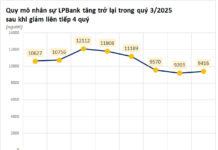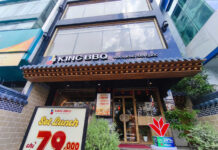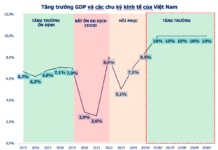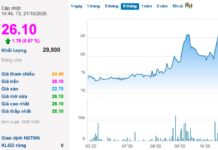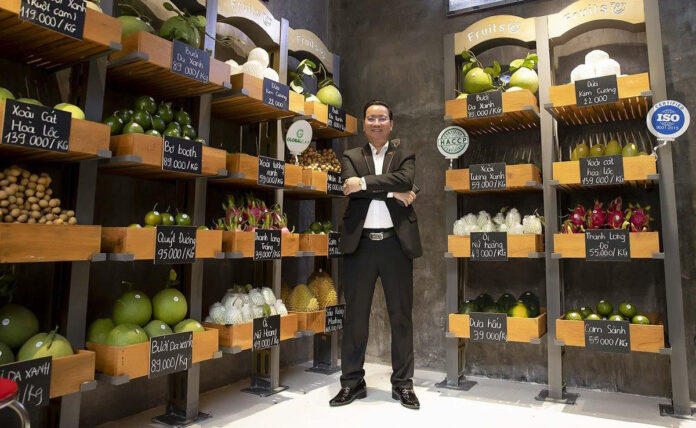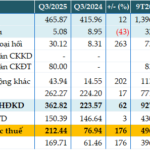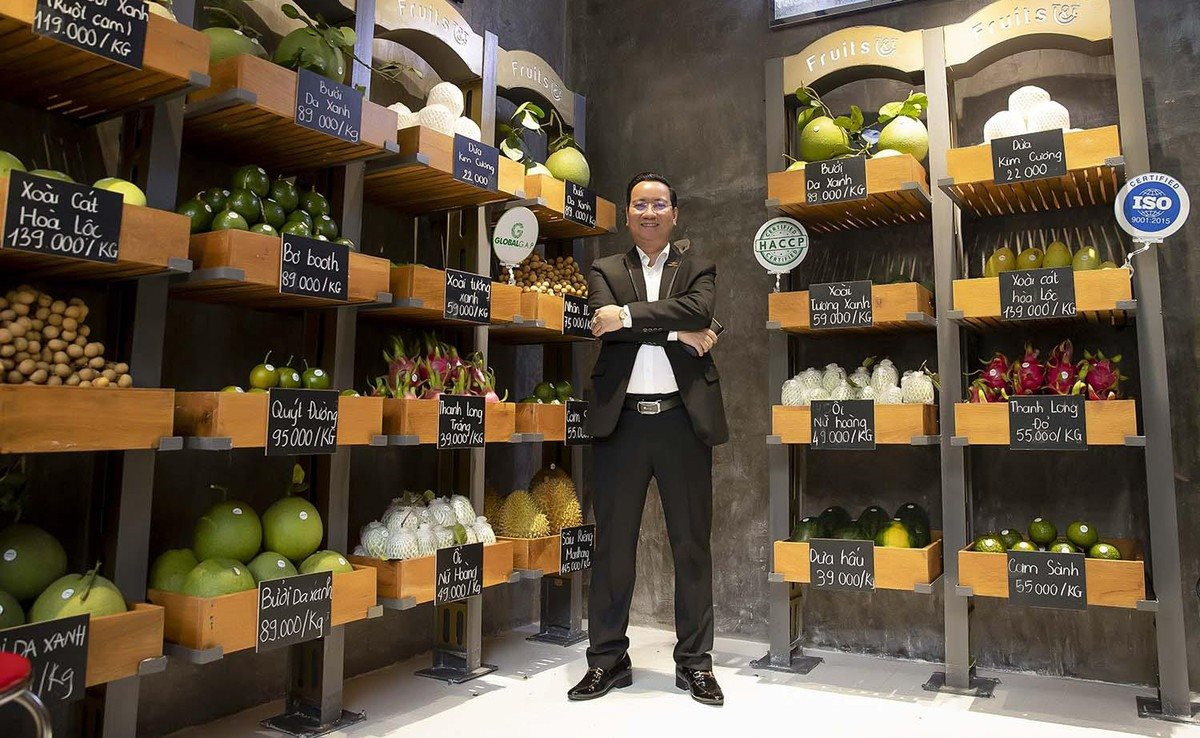
On August 19, during the visit of General Secretary and President To Lam and his spouse to China, a protocol was signed under the witness of high-ranking leaders of the two countries in Beijing, China. Accordingly, the Ministry of Agriculture and Rural Development of Vietnam and the General Administration of Customs of China (GACC) agreed to allow the official export of fresh coconut, frozen durian, and crocodile meat from Vietnam to China.
After the signing of this protocol, Vietnamese enterprises will be able to export their products to China if they have completed the necessary procedures and met the import requirements of the destination country. This is a significant step forward, opening up vast opportunities for domestic agricultural products, especially durian and fresh coconut – two types of fruits that are strengths of Vietnam’s agriculture and are produced year-round, akin to “gold mines.”
Regarding this news, we listened to the great expectations of Mr. Nguyen Dinh Tung, Chairman of the Board of Directors and CEO of Vina T&T, a leading Vietnamese fruit exporter and the top exporter of fresh coconuts.
BEHIND THE BILLION-DOLLAR PROTOCOL AND THE HUGE OPPORTUNITIES FOR VIETNAMESE ENTERPRISES
As Vice President of the Vietnam Vegetables and Fruits Association, Mr. Tung shared that the association and agricultural companies have advised the Ministry of Agriculture and Rural Development on negotiating with China to propose exporting frozen durian and fresh coconut to the Chinese market.
“Fortunately, the Minister of Agriculture and Rural Development, Mr. Le Minh Hoan, is a good listener to the opinions of businesses and the association. Before each trip, the Minister pays attention to the expectations of enterprises, their strengths, and the types of fruits that Vietnam can export well and benefit many people.”

Mr. Nguyen Dinh Tung, Chairman and CEO of Vina T&T
Mr. Tung stated that some specialty fruits, such as Hung Yen longan and Bac Giang lychee, are famously delicious but have the limitation of a short harvest season. In contrast, durian and coconut can be produced year-round and in large quantities, making it necessary to find export markets.
“In recent years, durian prices have been good, leading Vietnamese farmers to increase the planting area rapidly. If we don’t find a solution, it’s easy to predict that in the next five years, our country will have a surplus of this fruit, and we will fall into the cycle of high supply and low prices.” Finding an outlet for durian is crucial. However, Mr. Tung emphasized that if product quality cannot be assured, no matter how large the market is, it will be challenging to “rescue” this billion-dollar fruit.
“We have directly witnessed this when China raised the technical standards for durian this year. As a result, the price of this fruit has decreased significantly compared to the same period in 2023. If we don’t focus on developing durian sustainably, we will face significant challenges, regardless of the signing of an important protocol.”
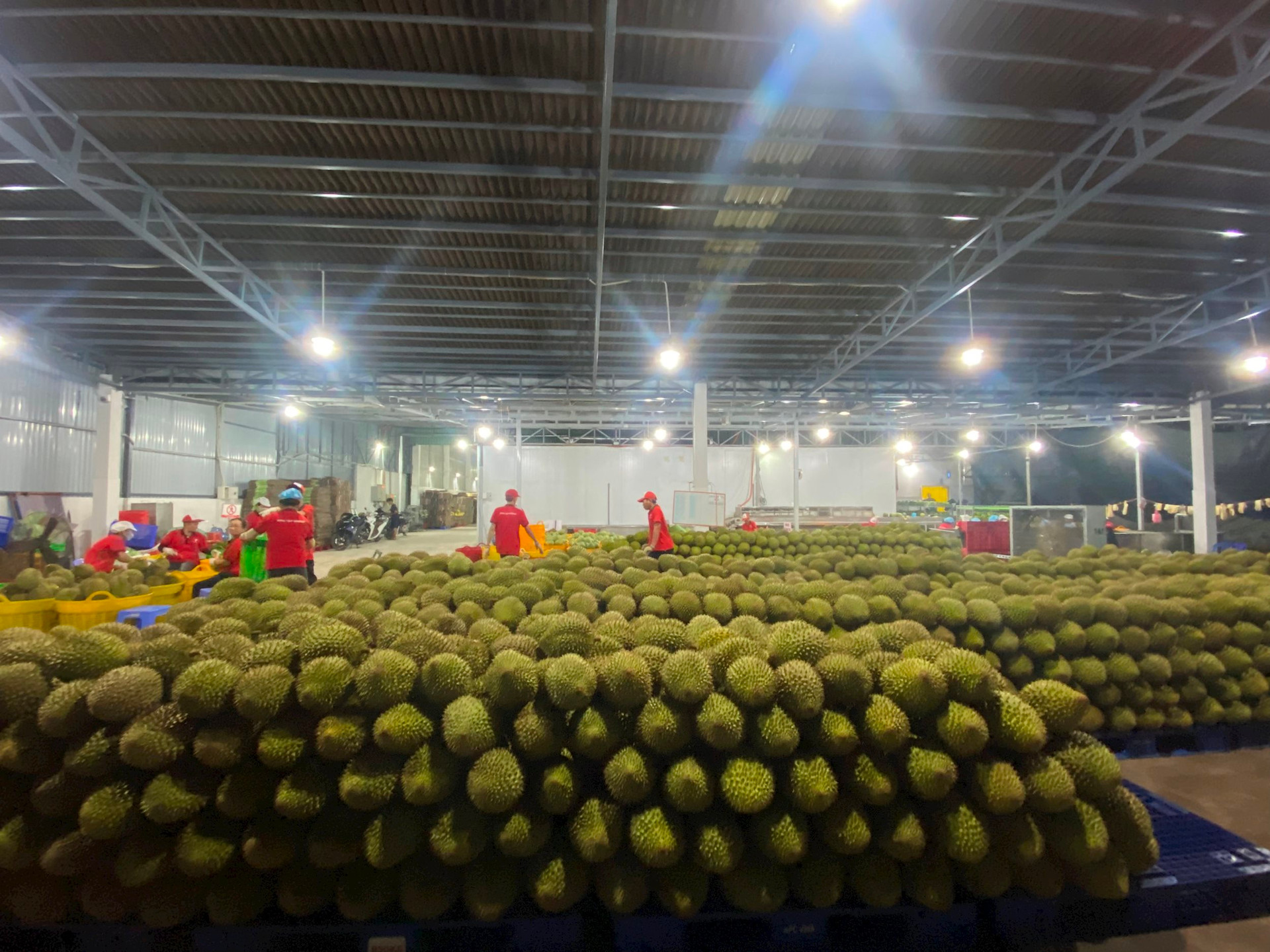
Vina T&T’s high-quality durian supply.
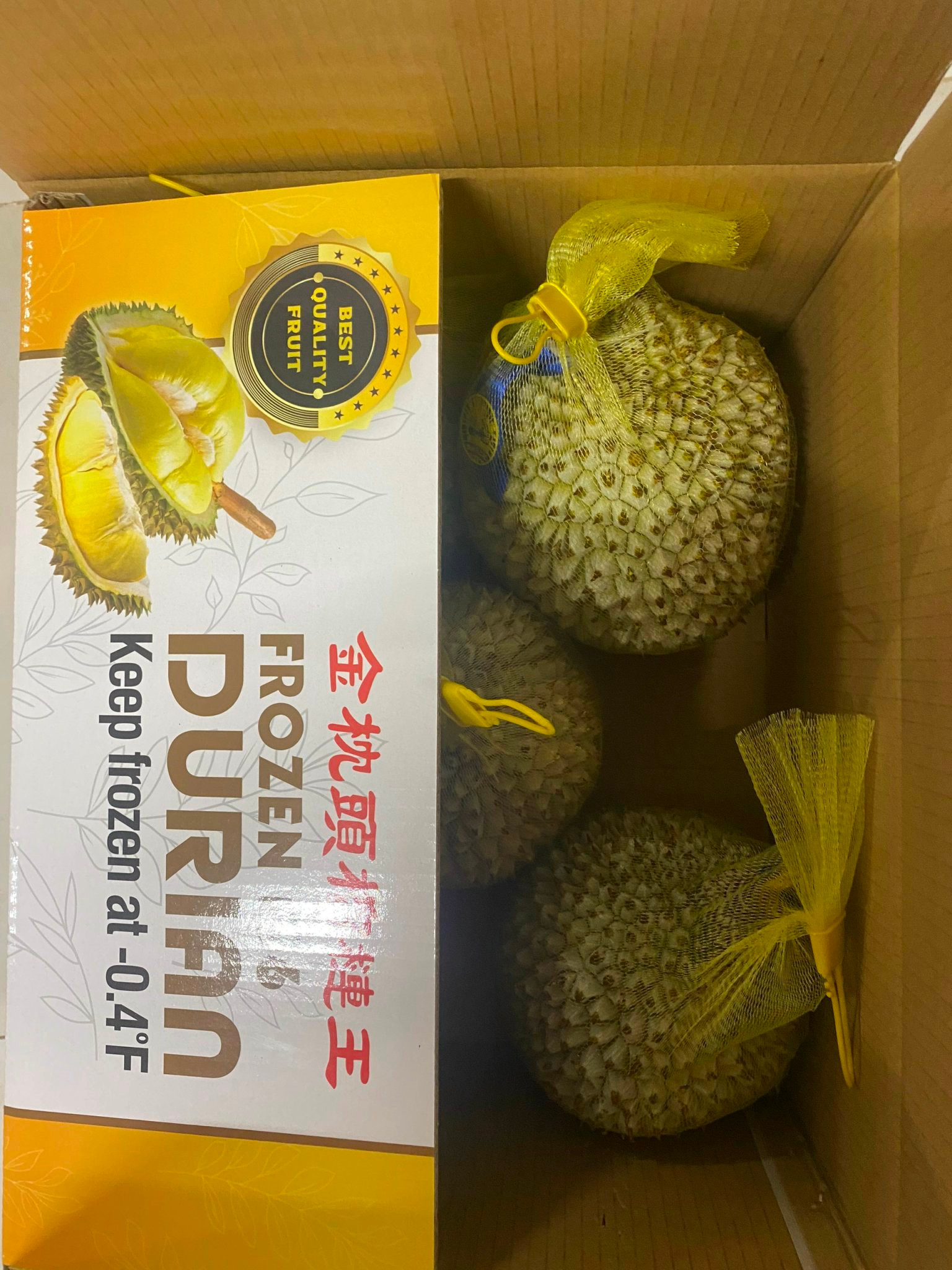
Mr. Tung analyzed that last year, Vietnam exported about 500,000 tons of fresh durian, earning 2.3 billion USD, with 90% going to China. The durian planting area was 154,000 hectares, with a yield of nearly 1.2 million tons and a growth rate of 15% per year. If frozen durian can be exported to China, the industry’s revenue will increase by about 20%, reaching about 2.5 billion USD this year.
Regarding coconut, Vietnam is one of the largest producers and exporters, with a planting area of 175,000 hectares, mainly in the Mekong Delta. The opening of the market of 1.4 billion people is expected to increase the export revenue of fresh coconut by 200-300 million USD. This will not only bring economic benefits but also promote the sustainable development and quality improvement of Vietnam’s agricultural products.
Mr. Tung mentioned that although China is a vast market and Vietnam has exported a large volume of fresh durian there, it has only reached a small customer base. Distant northern regions and autonomous regions like Inner Mongolia are still challenging for Vietnamese businesses to access due to product preservation issues. Fresh durian has a very short shelf life after reaching China, causing difficulties for Chinese partners in storage and consumption. With the permission to export frozen products, Vietnamese durian can penetrate deeper into the Chinese market, reaching more customers and providing significant convenience to partners in product consumption.
For fresh coconut, which has the advantage of easy preservation and long shelf life, exporting to China will create a significant advantage for Vietnamese businesses.
“If we do business honestly, from the production stage by not using prohibited substances as stipulated by the importing country, not harvesting unripe fruits, and ensuring proper packaging, processing, no mixing of different grades, and traceability, we will have a great opportunity.”
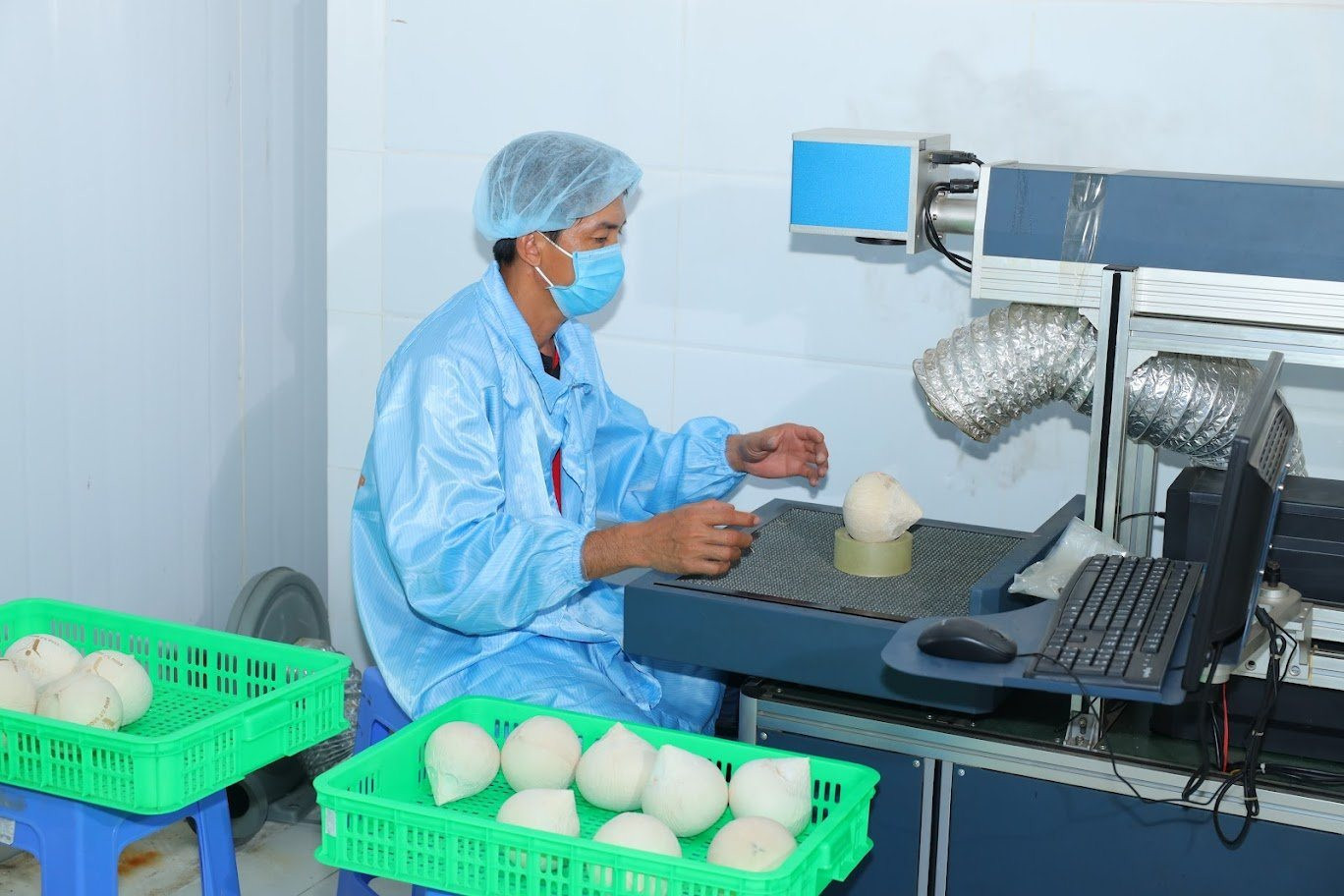
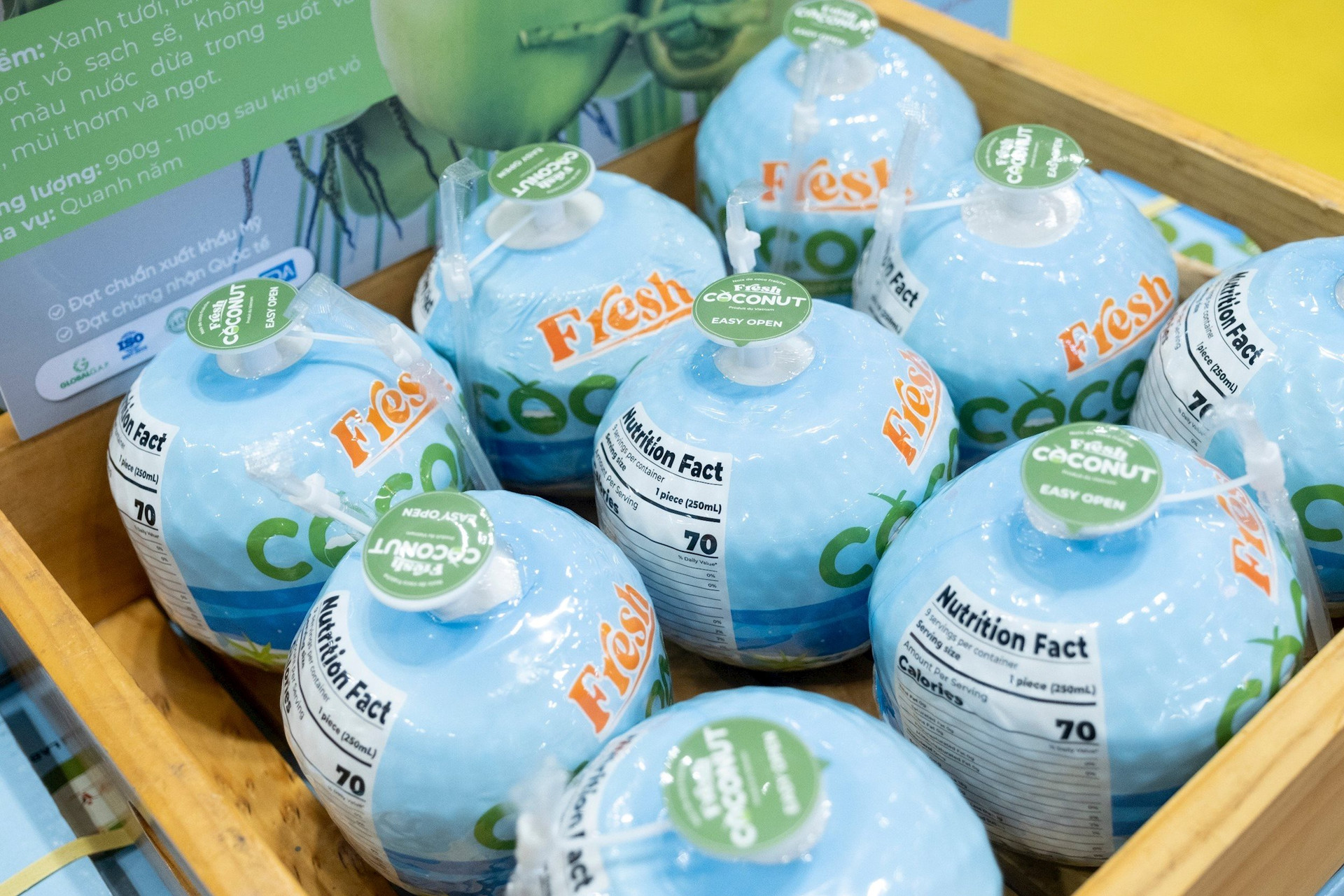
Vina T&T’s fresh coconut products.
VIETNAMESE BUSINESS TYCOON FORESEES REVENUE OF OVER 100 MILLION USD
Currently, Vina T&T, chaired by Mr. Tung, is the leading fruit exporter with a revenue of 85 million USD, equivalent to over 2,100 billion VND (figures in 2023). The company is also the largest exporter of fresh coconut in Vietnam, with sales of about 7.5 million USD, mainly to the US, Europe, and Australia.
Mr. Tung shared that with this protocol, Vina T&T has a significant advantage as the company has long considered fresh coconut and frozen durian as its key export products. The company already has a good foundation to meet the needs and standards of Chinese customers, such as organic growing areas, processing plants, modern lines, freezing technology, and good preservation.
“Previously, we exported frozen durian to many places, mainly areas that fresh durian could not reach. So, Vina T&T is well-prepared to export high-quality frozen durian that meets the new and stringent standards of the Chinese market.”

The “King of Vietnamese Fruit Exporters” has high expectations for revenue growth after the protocol signing.
Just considering the export of frozen durian to the Chinese market, Vina T&T expects to increase its revenue by 30%, equivalent to about 25 million USD. For fresh coconut, the company will increase its sales by about 10%, or 10-17 million USD. Combined, these two product categories will contribute to a 40% growth for the company, potentially pushing total revenue beyond 100 million USD.
“This is our expectation if everything goes smoothly. Of course, we have a basis for this because Vina T&T has built a large partner system in China, notably the Sunwah Group, a company strong not only in agricultural import and export but also in retail distribution in China.”
Notably, the Asia Fruit Logistica International Exhibition in Hong Kong is about to officially open from September 4 to 6, 2024. The signing of the protocol between China and Vietnam right before this event is a significant advantage, helping Vietnamese businesses promote and introduce their products to partners and find potential customers.

